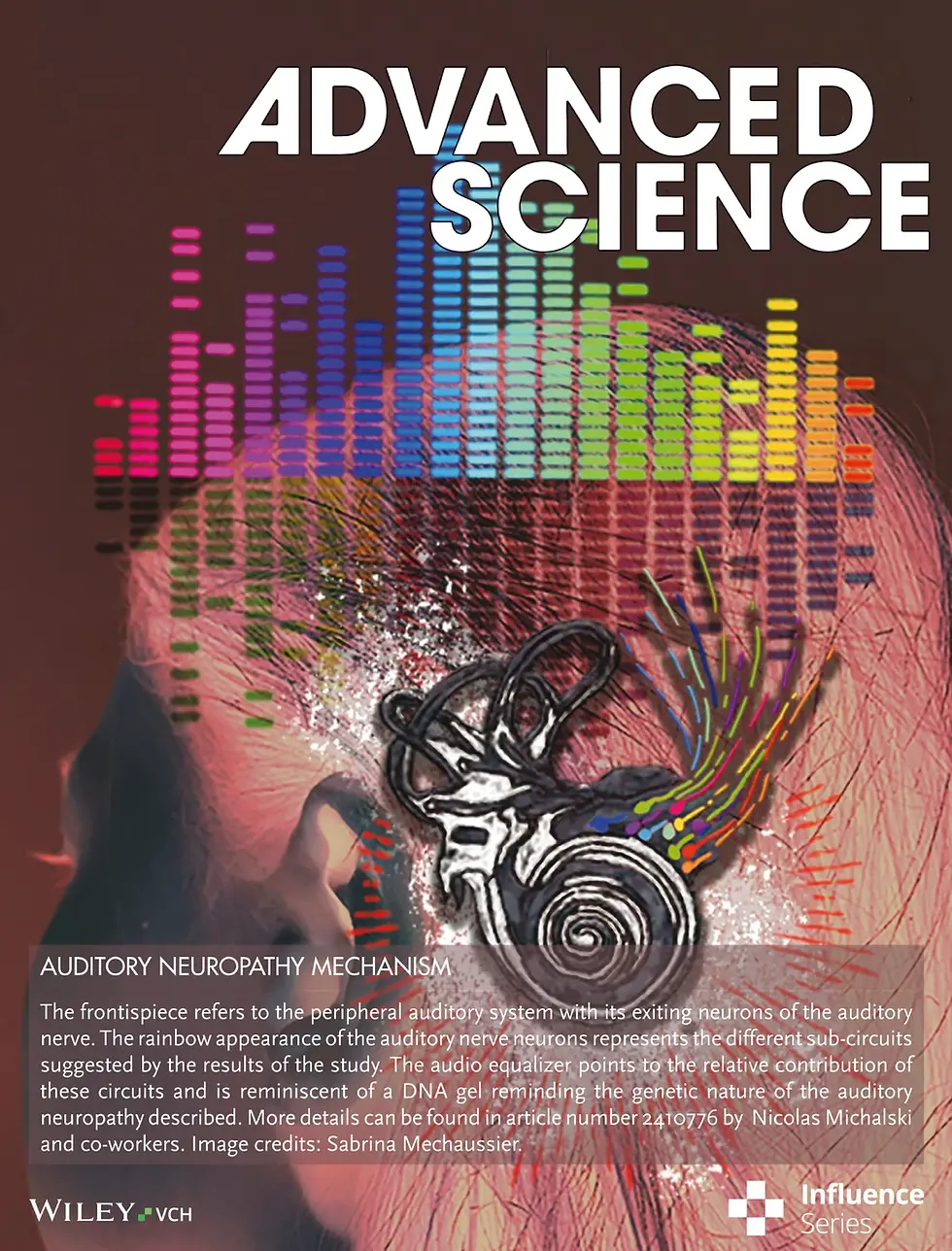Pre-clinical study demonstrates that gene therapy preserves hearing in a model of progressive hearing loss
- heloiseherve
- Mar 11, 2024
- 1 min read
Updated: Mar 12, 2024

Hearing loss is a major health problem affecting millions of people worldwide, with limited treatment options. Cochlear implants are one of them, but they can only partially restore hearing, which is insufficient to appreciate the nuances of a conversation or a piece of music.
Dr Aziz El-Amraoui's team is working on genes for late-onset, progressive and age-related hearing loss. Using animal models, they are studying the gene coding for the Clarine 2 protein (Clrn2), which in humans is responsible for an isolated form of hearing loss, diagnosed after language acquisition.
In a gene therapy project led by Dr Sandrine Vitry, the team has just demonstrated that in vivo injection of the Clrn2 gene can substantially and durably preserve the auditory functions of sensory hair cells initially altered in absence of this gene. A single injection, carried out before the onset of the first inner ear dysfunctions, is sufficient to prevent hearing loss. This research highlights the importance of the therapeutic window for maximum efficacy.
Together, the findings underscore the promising potential of gene therapy for restoring auditory function, opening the path to new perspectives in the treatment of inherited hearing loss.
This study is published and featured on the cover of the journal Molecular Therapy.
Mendia, C., Peineau, T., Zamani, M., Felgerolle, C., Yahiaoui, N., Christophersen, N., Papal, S., Maudoux, A., Maroofian, R., Patni, P., Nouaille, S., Bowl, M. R., Delmaghani, S., Galehdari, H., Vona, B., Dulon, D., Vitry, S., & El-Amraoui, A. (2024). Clarin-2 gene supplementation durably preserves hearing in a model of progressive hearing loss. Molecular Therapy. https://doi.org/10.1016/j.ymthe.2024.01.021



